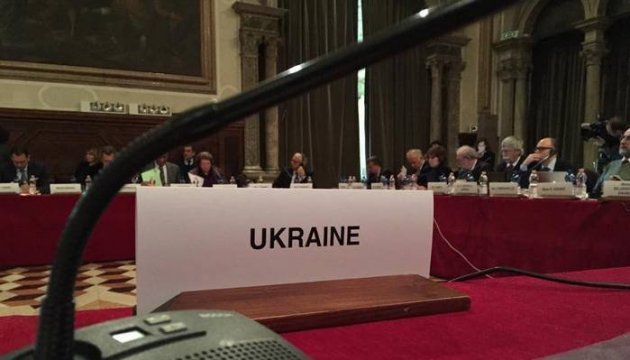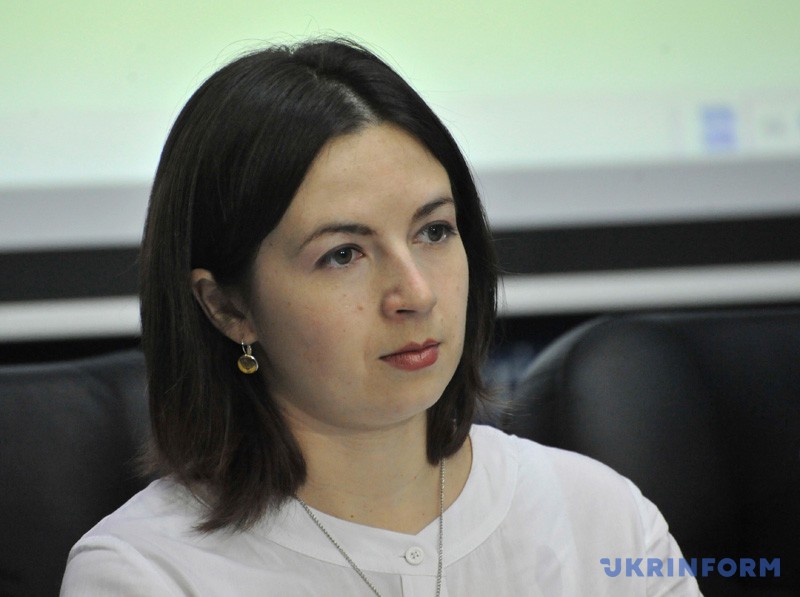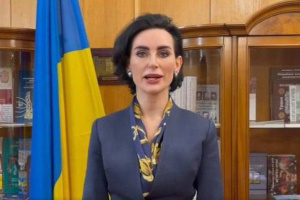
Venice Commission's opinion: when each letter matters
International experts do not have specific claims to the language article of Ukraine's education law and do not require any changes to it. And this is the main victory for Ukraine. Yes, the authoritative jury hinted at certain organizational failures in the work with national minorities and formulated remarks that can be resolved in the working order.
The document contains a number of recommendations for Ukraine, but, at the same time, believes that the rights of the Hungarian minority and other minorities of the titular nations of the EU member states can be respected without amending Article 7 of the law, that is, the one in which the language of instruction is established, and around which all disputes were underway.
Of course, it was not necessary to expect that Hungary, which opposed this provision more than anyone else, will change its rhetoric and retreat claims to Ukraine. Also, nobody expected that the Russian aggressor would be pleased with cautious warnings of Europeans regarding the possible imbalance in the educational rights of the Russian minority, which does not belong to the official languages of the EU.
Hungary, for example, was in a hurry to state that the Venice Commission in its decision supported their side. Hungarian Foreign Minister Peter Szijjarto said: "The decision of the Venice Commission, which was published today, is 'absolutely unambiguous,' and the proposals contained therein cannot be interpreted ambiguously." According to Szijjarto, it is clear from the document that "the right decision" is the introduction of amendments to the contradictory Article 7 of the education law.
On the whole, the Government of Hungary formulated three expectations from the Ukrainian authorities: not to restrict already existing rights (let us remind you that knowledge of the state language is not a right, but a citizen's duty, therefore nobody selects, restricts, and manipulates anything!) , negotiate with national minorities in Ukraine, and fully implement the recommendations of the Venice Commission.
In general, the Government of Hungary formulated three expectations from the Ukrainian authorities - not to restrict already existing rights (knowledge of the state language is not a right, but a citizen's duty), negotiate with national minorities in Ukraine, and fully implement the recommendations of the Venice Commission.
The Ukrainian Foreign Ministry, in turn, politely asked Hungary to refrain from freely interpreting the recommendations of the Venice Commission and not to politicize and use the Ukrainian education reform for a different genre of speculation and confrontation.

Mykola Skyba, an expert of the independent analytical center of the Ukrainian Institute for the Future:
We have, let's say so, the relative diplomatic success of Ukraine. I would not dare to call this decision by the Venice Commission a significant victory, taking into account the context of its adoption. The need for an examination of the education law was the result of a loud diplomatic scandal, first of all, on the part of Hungary. Of course, the demands of the Hungarian side were hypertrophied, and this was noticeable. They stemmed from the internal political situation in this country, where we see in fact the monopoly of one political party that is trying to mobilize the electorate in every way possible and find it in the territory of other states where the ethnic Hungarian minority resides.
There's really significant work of our diplomats behind the formulations of the Venice Commission. As far as I know, the fight was underway in the commission in the last days for the content of every sentence, for every word. For example, is it necessary to use "should" or "must"? And so on. One can say that the decision is generally favorable for Ukraine. It allows, with minimal losses, to get out of the trap into which, honestly, individual deputies drove the entire country with their political decisions.
It is also necessary to understand that the controversial language article in the education law is a framework article, and therefore it has a huge amount of tasks and practical steps. Therefore, we are advised to extend the term of the transitional provisions of the law. It is clear that even those three years that we established for ourselves are not realistic for the transition to a new language model, especially given the peculiarities of one or another language of national minorities. It is difficult to immediately find in Ukraine a sufficient number of specialists, teachers, who would have good command, for example, of Ukrainian and Hungarian (or Romanian). This is difficult, and therefore it was necessary from the very beginning to take care of the resources necessary for implementation. For example, the introduction of a standard in education requires a series of "related" decisions, in particular, in terminology. A translation is not enough here, but it is necessary to coordinate all the nuances of the conceptual apparatus in one language or another. In order to ensure bilingual education, all curricula should be identical, in two equivalent versions, and submitted in accordance with the concept of the New Ukrainian School.

Iryna Kohut, an expert of the CEDOS Center (formerly known as the Center for Society Research):
- The question is what goals we set by adopting the law on education with such a language provision. If the goal was to maximize the integration of children of national minorities in our society, say, increasing the proportion of those graduates who continue education in Ukraine and are employed here, then this is one thing. If we aim to change the language regime in a country that is suffering from aggression (in particular, on this basis) and try to strengthen the lost status of the state Ukrainian language in this way, then this is another goal. Unfortunately, in our society there is no single understanding that in this issue is a priority.
The Venice Commission said that the main load on the interpretation of this article would lie on the future law on general secondary education. Therefore, we must now carefully look at what the Education and Science Ministry offers and consider its proposals almost under a microscope. The main thing is to understand what will be offered for the practical implementation of the language norm, how successful and effective the mechanism will be. It is logical to expect that specific solutions will be worked out in the process of consulting with the public, especially with representatives of national minorities. This, in principle, is part of the recommendations of the commission. That is, further legislative work will show us whether we really took advantage of these recommendations and whether we got the result of that victory, which is currently mentioned by top Ukrainian officials.
The commission has clearly indicated to Ukrainian officials that laws relating to the interests of interested parties and large groups of the population should be discussed in advance. The adoption of such language norms should be accompanied by consultations, and it is important that this commission's remarks are not lost in future decisions of our government.
Oksana Polischuk, Kyiv




